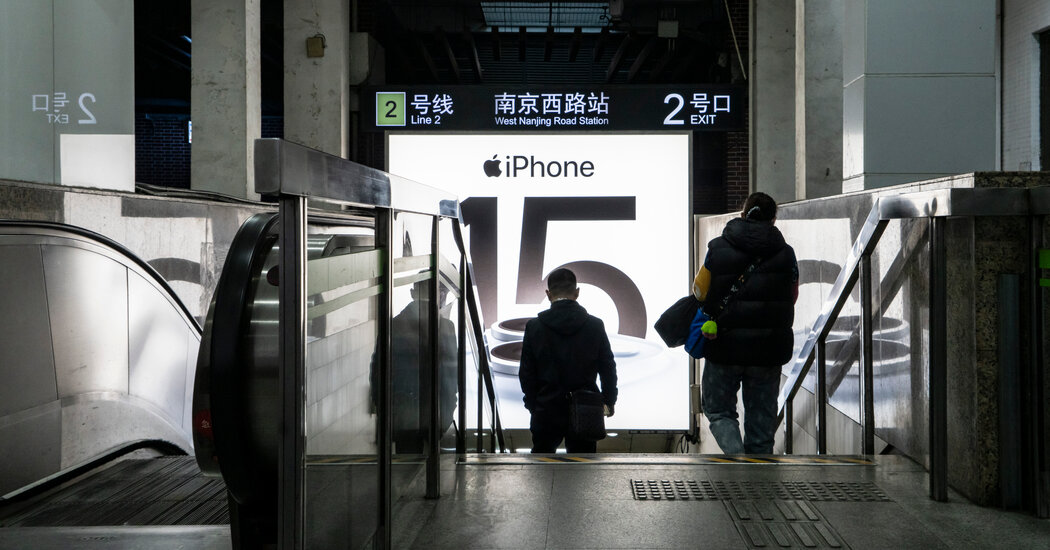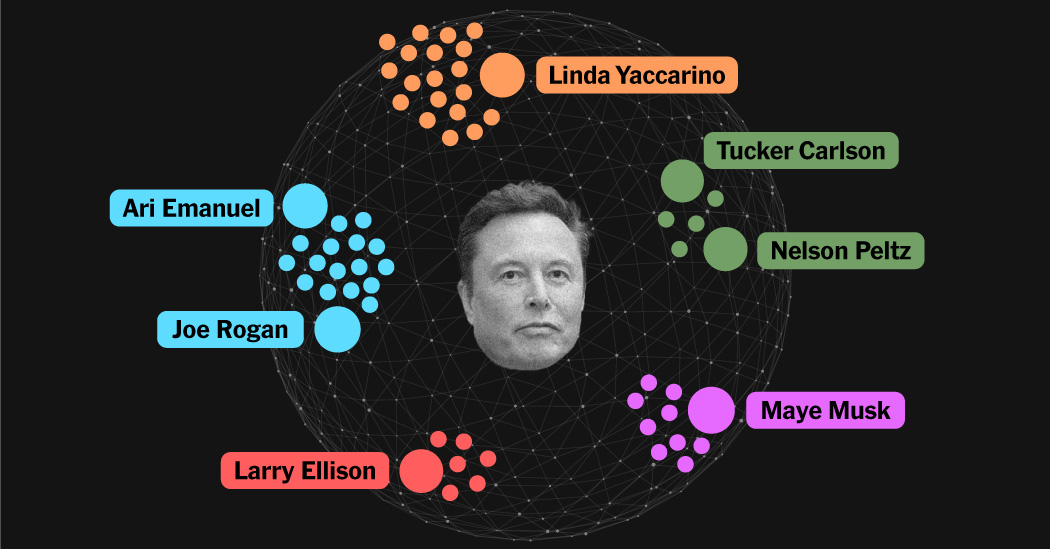Difficulties have been piling up for Apple. In recent months, it has been sued by the Justice Department, fined by European regulators and challenged by the resurgence of a Chinese smartphone competitor.
On Thursday, the company added to its list of problems, reporting that its business was in a slump.
Apple said sales fell 4 percent to $90.8 billion for the three months that ended in March. Revenue from iPhones, iPads and wearables like the Apple Watch declined from the same quarter last year, while sales of software and services rose. Profit fell 2 percent to $23.64 billion, Apple’s first quarterly decline in a year.
Apple’s struggles were most worrisome in China, the world’s second-largest smartphone market, where sales fell 8 percent. The iPhone’s popularity there has waned since Huawei, which the Trump administration restricted from working with U.S. technology firms, introduced a new smartphone with 5G abilities last year. Last quarter, Apple’s share of smartphones sold in China fell 4 percent, according to Counterpoint, a technology research firm.
Shares of Apple rose 3.5 percent because the results slightly exceeded Wall Street predictions for quarterly sales and profit and were better in China than feared. The company said that it would repurchase $110 billion of stock and that its sales were on track to increase in the current quarter.
The poor results stood in contrast to the strong performances of other big tech companies. Over the past two weeks, Amazon reported that its quarterly profits had tripled, Microsoft increased quarterly sales from cloud computing by a third and Alphabet, Google’s parent company, announced that it would pay its first dividend.
Those companies’ sales have accelerated in part because of their investments in generative artificial intelligence. The technology, which can write essays and software code, is one that Apple hasn’t yet incorporated into its products. Investors hope that will change in June when Apple holds its annual developers’ conference and reveals its newest software.
“This is a bellwether stock that is going through a volatile time,” said Scott Acheychek, the chief operating officer at REX Shares, a provider of exchanged-traded funds. “Apple needs a win to change this narrative, and if they can get a segment of A.I. across their devices, that could be it. The question is: What is their path forward?”
Apple’s business continues to be carried by its success selling customers apps and services. Across its 2.2 billion devices in use around the world, the company has sold more than a billion subscriptions for everything from dating apps like Tinder to its own services like Apple Music. Sales of software and services rose 14 percent to $23.9 billion last quarter, it said.
But the App Store, which is one of the biggest pieces of the company’s service business, is being challenged by regulators worldwide. The store is the only way to distribute apps on iPhones, and Apple collects a 30 percent commission on every app sold.
On March 4, the European Commission fined Apple 1.8 billion euros ($1.95 billion) for thwarting competition by preventing music streaming rivals from offering users promotions and subscription upgrades. The commission is also investigating Apple for potential violations of a new competition law that requires the company to allow competing app stores and alternative payment systems.
Next week, a federal judge will hold a hearing to determine whether Apple is subverting a 2021 court order to allow alternative ways to pay for services in apps. Apple said developers could use other payment systems but would have to pay a 27 percent commission. Epic Games and other companies said the fee violated the court’s ruling.
Analysts don’t expect the regulatory challenges to hurt Apple’s business. But they have been a distraction from the company’s efforts to focus customer attention on its devices.
In January, Apple began selling an augmented-reality headset, the Vision Pro. The device, which costs $3,500, was a small contributor to the company’s sales in the period, analysts said. It isn’t expected to be purchased in large quantities for at least four years.







